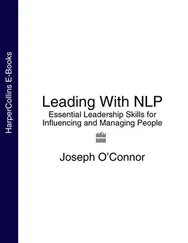John Gray - Children Are from Heaven - Positive Parenting Skills for Raising Cooperative, Confident, and Compassionate Children
Здесь есть возможность читать онлайн «John Gray - Children Are from Heaven - Positive Parenting Skills for Raising Cooperative, Confident, and Compassionate Children» весь текст электронной книги совершенно бесплатно (целиком полную версию без сокращений). В некоторых случаях можно слушать аудио, скачать через торрент в формате fb2 и присутствует краткое содержание. Год выпуска: 1999, ISBN: 1999, Издательство: HarperCollins e-books, Жанр: psy_childs, sci_pedagogy, Психология, на английском языке. Описание произведения, (предисловие) а так же отзывы посетителей доступны на портале библиотеки ЛибКат.
- Название:Children Are from Heaven: Positive Parenting Skills for Raising Cooperative, Confident, and Compassionate Children
- Автор:
- Издательство:HarperCollins e-books
- Жанр:
- Год:1999
- ISBN:978-0-06-133886-1
- Рейтинг книги:4 / 5. Голосов: 1
-
Избранное:Добавить в избранное
- Отзывы:
-
Ваша оценка:
- 80
- 1
- 2
- 3
- 4
- 5
Children Are from Heaven: Positive Parenting Skills for Raising Cooperative, Confident, and Compassionate Children: краткое содержание, описание и аннотация
Предлагаем к чтению аннотацию, описание, краткое содержание или предисловие (зависит от того, что написал сам автор книги «Children Are from Heaven: Positive Parenting Skills for Raising Cooperative, Confident, and Compassionate Children»). Если вы не нашли необходимую информацию о книге — напишите в комментариях, мы постараемся отыскать её.
Children Are from Heaven: Positive Parenting Skills for Raising Cooperative, Confident, and Compassionate Children — читать онлайн бесплатно полную книгу (весь текст) целиком
Ниже представлен текст книги, разбитый по страницам. Система сохранения места последней прочитанной страницы, позволяет с удобством читать онлайн бесплатно книгу «Children Are from Heaven: Positive Parenting Skills for Raising Cooperative, Confident, and Compassionate Children», без необходимости каждый раз заново искать на чём Вы остановились. Поставьте закладку, и сможете в любой момент перейти на страницу, на которой закончили чтение.
Интервал:
Закладка:
Ideally, children should feel taken care of up to seven years old and then between the ages of seven and fourteen, children should focus on having fun by playing, singing, doing crafts, painting, learning a musical instrument, sports, drama, school homework, and doing fewer chores at home. Helping with dishes, cleaning, and taking care of pets is certainly fine, and does not come under the category of “too much work.” The best way to determine how much work to give your children is to listen to their resistance and reconsider. Being a parent requires making adjustments every step of the way.
When children learn to be happy, as teenagers they are ready to buckle down and work hard. When children are required to work as children and not have fun, they never learn how to have fun. As teenagers, they often rebel against work or they work hard but have no fun.
Only a hundred years ago, children worked in factories, but gradually society realized that this was abusive. Today we need to realize that it is also a mistake to work our children at home. It is the parents’ job to give and the child’s job to just receive. Then, around age seven, children have a new need: the need to have fun and play with family and friends. This is the time when children are supposed to develop one of the most important skills in life: the ability to be happy.
It is the parents’ job to give and the child’s
job to just receive.
Most adults really never learn how to have fun and enjoy their lives. This is because they didn’t get the necessary support to learn how to have fun. Happiness is a skill, and this skill develops between ages seven and fourteen. Too much academics or too much responsibility and work before puberty will restrict a person’s ability to be happy later in life. They either reject work and seek to have fun and be irresponsible as teenagers, or they work hard, but, because they are too serious, they are never happy or satisfied.
Most parents mistakenly believe that they need to teach their children to work hard and be responsible. Children learn to be responsible by having responsible parents.
Children learn to work hard by observing their parents work hard. Children learn everything primarily by imitation. They eventually do what they see their parents do.
With this insight, parents can have the confidence to follow their hearts and create a happy and fun childhood for their children. Hard work is not needed until puberty.
THE GIFT OF READING
When a child is restless and fussy before going to bed, besides singing little songs, reading stories is an excellent way to prepare the child to relax peacefully and sleep deeply.
Although reading to a child before bed is probably the most important gift a parent can give a child, it is particularly important for the responsive child. They hunger to hear stories, myths, and legends. They need the stimulation of faraway places, people, and things.
Children live in a magical world until they are about nine years old. Already society is rushing them to wake up and experience the real world. Parents should not worry. Let your child take time to develop and he or she will easily adapt to the real world when ready. Until they are about seven years old, children do not even have the capacity for logic, and they cannot comprehend an abstract thought until age thirteen.
Let your child take time to develop and he
or she will easily adapt to the real world
when ready.
When children hear on the news that there is a killer on the loose, they assume they are in danger just as everyone else is.
Using logic to minimize these fears doesn’t work. It doesn’t work to say, “Well we have a safe neighborhood and so you are safe.” Magical thinking requires magical solutions. Saying a prayer for your child’s safety will do the trick. If you don’t pray, then wave a magic wand to reassure your child that he or she is protected. To minimize resistance it is best not to allow children hear or watch the news up to the age of seven.
By hearing stories, children are easily distracted from life’s burdens. Children use images created by hearing stories to develop their imagination, creativity, and a stronger sense of self. Successful people have the sense that they create their lives, while less successful people feel more victimized or tossed around by life’s challenges and setbacks. Through increased imagination and creativity, a child is better prepared to solve problems later in life.
Responsive and sensitive children tend to be more at effect already. By creating their own inner pictures in response to stories, children develop a stronger sense of themselves and their ability to create, and will naturally feel in life more “at cause.” Too much watching TV or movies can weaken this process of creating internal pictures.
USING DISTRACTION TO REDIRECT
All children can benefit from distraction. Up to about eight years old, children are easily distracted from their resistance by being told a little story with lots of imagery, color, and shapes. It doesn’t matter if the story is not connected to what your child is resisting. Just shift the subject and begin telling a story with descriptive phrases.
For example, when your child is resisting putting on his coat, break out of the power struggle by stopping and talking in story tone. Say something like this, “Oh, look at the beautiful green leaves of that tree. I remember once walking in a beautiful forest and there were giant trees on every side. The sky was such a beautiful blue. There was one big puffy white cloud right above me. I walked all day until I was really tired. It was a long walk but it felt good. Now let’s put on this coat.”
This is called establishing rapport and then inviting participation. When you tell a story with lots of colors and objects to visualize, the child automatically leaves his or her resistant self and goes into rapport or harmony with you. As a result, the child is much more willing to cooperate.
To minimize resistance, establish rapport and
then invite participation.
At any age, when children are upset and resistant, they respond well to redirection like, “Now let’s do this . . .” or “And now we will . . .” Rather than ask the child what she wants to do or even what she would like to do, the parent needs to lead the child. As the child forms her own wishes and wants, she will resist and let you know what she wants. At this point, the parent can say, “Okay, that’s a good idea. You do that.” Instead of directly asking her what she wants or what she would like to do, make suggestions and let her agree or disagree indirectly through her acceptance or resistance.
Let’s explore an example:
MOTHER: Jimmy, let’s go play at the park.
JIMMY (eight years old): I don’t want to go to the park.
MOTHER: Why not?
JIMMY: I want to play in my room.
MOTHER: Okay, if you want to stay home it is all right with me. Take out your colors and make a picture.
JIMMY: I don’t want to do an art project. I would rather play with my new model airplane.
MOTHER: That’s a great idea — you play with your new model airplane and I’ll come in a little later and see how you are doing.
In this way, without asking the child directly, the parent makes suggestions the child can resist, gradually becoming able to identify what it is he wants. As a general rule for all temperaments, it is not a good idea to ask children what they want, like, need, think, or even how they feel. Instead, suggest and they will either accept or resist. By resisting, they form a clear idea of what they want, feel, and think.
It is not a good idea to ask children what
they want, like, need, think, or even how
Читать дальшеИнтервал:
Закладка:
Похожие книги на «Children Are from Heaven: Positive Parenting Skills for Raising Cooperative, Confident, and Compassionate Children»
Представляем Вашему вниманию похожие книги на «Children Are from Heaven: Positive Parenting Skills for Raising Cooperative, Confident, and Compassionate Children» списком для выбора. Мы отобрали схожую по названию и смыслу литературу в надежде предоставить читателям больше вариантов отыскать новые, интересные, ещё непрочитанные произведения.
Обсуждение, отзывы о книге «Children Are from Heaven: Positive Parenting Skills for Raising Cooperative, Confident, and Compassionate Children» и просто собственные мнения читателей. Оставьте ваши комментарии, напишите, что Вы думаете о произведении, его смысле или главных героях. Укажите что конкретно понравилось, а что нет, и почему Вы так считаете.












